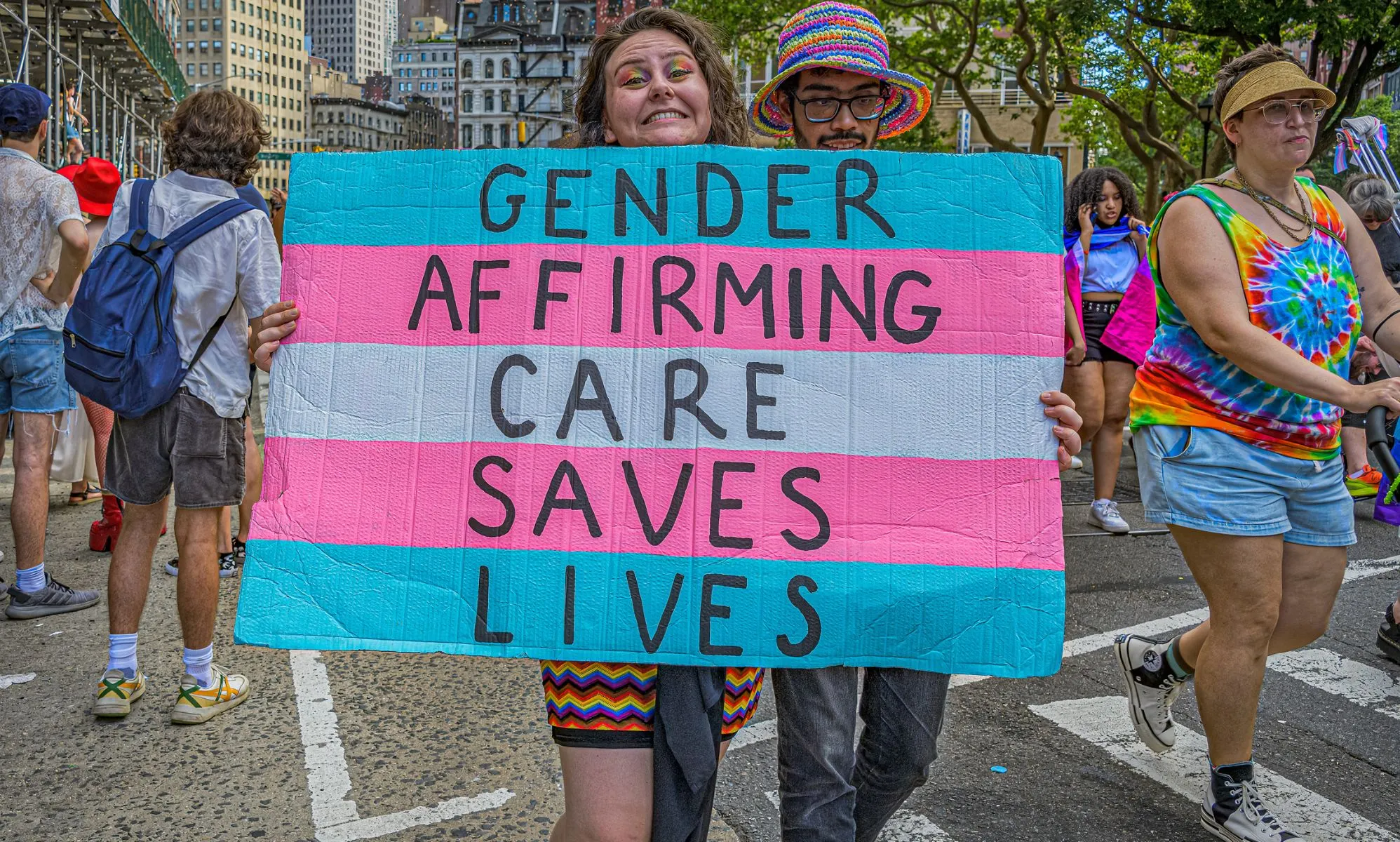Hateful bigots ‘feel emboldened by the silence of onlookers’. It’s time to change that
A man on a train. (Envato Elements)
Being part of the LGBT+ community can mean being a target for hate. But as journalist Louis Staples writes, small acts of solidarity can come as a comfort to those who find themselves singled out – and it’s something we need more of.
Queer people have a lot of stories: the realisation that we are different, that first crush and our first time in an LGBT+ venue. Navigating the world can be a hailstorm of awkward and life-affirming moments.
But too many of us have another story too. A moment, or several times, where something happened that made us feel unsafe. Since moving to London six years ago – the diverse, radical city where the Gay Liberation Front organised Britain’s first Pride protest in 1972 – I’ve been surprised by how many times I’ve been made to feel unsafe by people on the streets, but also on public transport.
One of these occasions happened on the top deck of the 149 bus in the middle of a summer’s day. My crime? Wearing a floral jacket. That was enough for me and my partner to, apparently, deserve to be screamed at with homophobic abuse until we were both shaking. I felt physically sick for the rest of the day.
The next time, which happened about a year later while I was on the London Overground with a friend, a group of men pointed at us and shouted homophobic slurs as they edged closer in a deliberately menacing way. When my friend got off the train, so did they. Thankfully we were both physically unharmed, though we were very shaken by not just what happened, but what we were made to think could have happened.
These types of incidents underline the fact that being in the wrong place at the wrong time as an LGBT+ person, even in London in the year 2021, can result in a scary and potentially dangerous experience. Many of us carefully plan our routes home and change our appearance, turn our headphones off and police our own mannerisms, all with the goal of getting home safely.
The thing about incidents like this is that they can come out of nowhere. I’ve lost count of how many times I’ve been called a “f****t” or a “queer” by complete strangers – people who’ve walked past me on the street, or even gone to the trouble of winding down their car window to shout it to me as they drove off into the distance. Thinking about the fact that those people could be anyone, or anywhere, is difficult.
I understand why people might not want to get involved. But if you feel able to, I would say that showing a stranger solidarity in that moment – something as small as sitting next to them or staying with them until their destination – is a powerful thing, even if you have to wait until after it’s over. Perpetrators feel emboldened by the silence of onlookers, which sends the message that most people either agree with, or don’t care enough to challenge, their behaviour.
Thankfully, statistics tell us that the opposite is the case. Research from 2020 revealed that 92% of British people are comfortable with a gay, lesbian or bisexual person being their neighbour, manager, GP or prime minister. For transgender people the figure is slightly lower (82%) but still high. Statistics are important reference point, so a way to respond to an incident of hate crime, if you feel able to, is to report it to police. It’s not just about finding the perpetrator – it will help to provide a more accurate picture of the country we’re living in, so more can be done to make LGBT+ people feel safe.
After the incident on London Overground, I posted about it on Twitter. And about a week later I received a beautiful handwritten note from (presumably) a stranger sent to my work address, sending me solidarity. The letter is something I hold onto as a reminder that there’s so many more supportive people out there – but there’s still work to do.
If you experience or witness a hate crime on London’s public transport network, you can report it to:
- A member of TfL staff
- For incidents on streets or buses, call the Metropolitan Police on 101
- For incidents on Tube or rail services where you may not be able to make a call, text the British
Transport Police on 61016. This number is also monitored 24/7. - In an emergency, always call 999.






